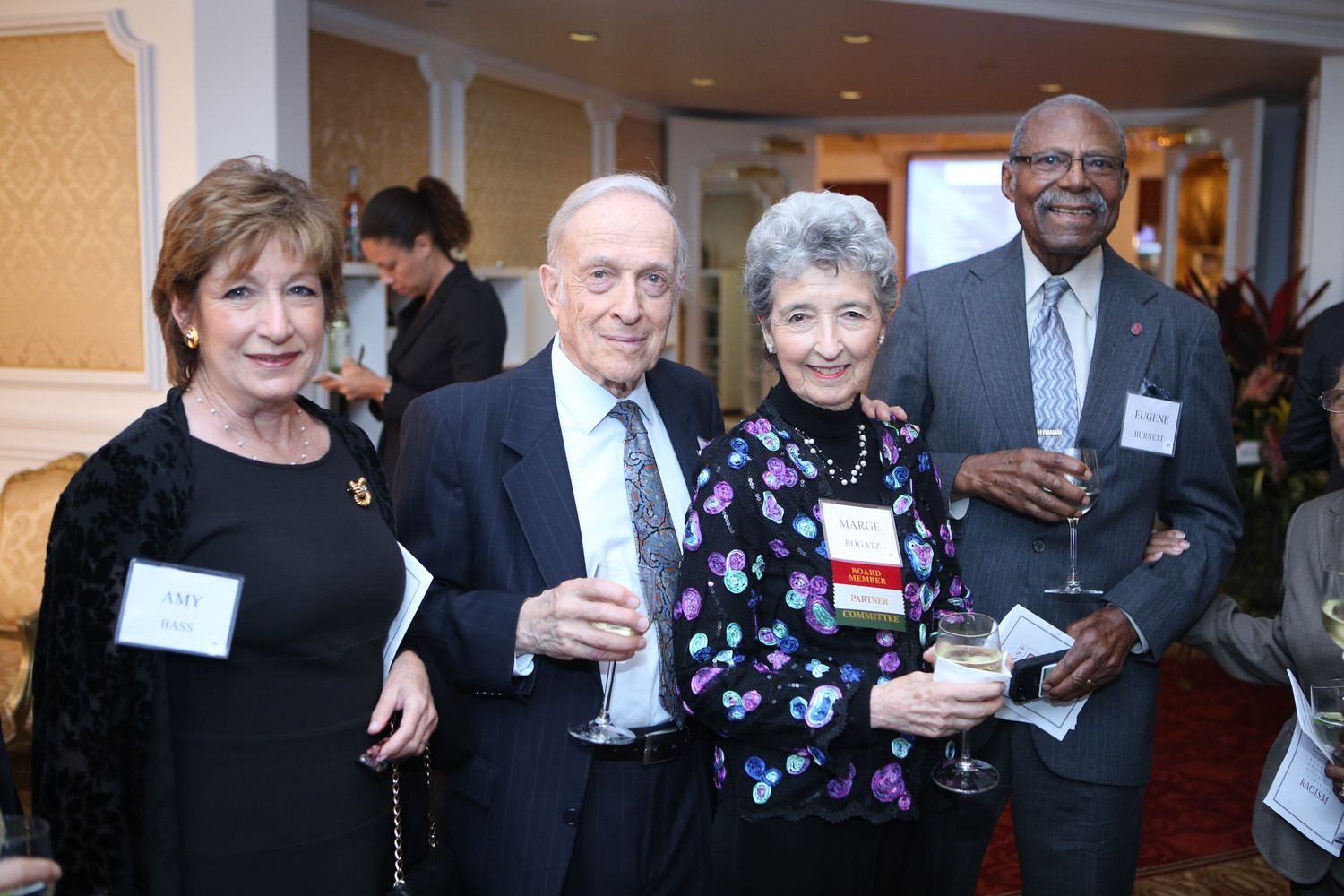Lawrence native involved in the civil rights battle
Contemporary battles and the unearthing of racist language thought dormant marks this February’s commemoration of Black History Month as the struggle and dedication of Civil Rights leaders are remembered in the shadow of the 50th anniversary of the Rev. Dr. Martin Luther King Jr.’s assassination.
Because of this Marge Rogatz wants people to understand the fight for equality continues. She was an activist and assistant to some of the movement’s leaders.
She is who is now a co-chair on the board of ERASE Racism, an organization that works to expose racial discrimination and advocate for laws to eliminate racial disparities and segregation on Long Island.
Living in Lawrence from age 9 until graduation from Lawrence High School in 1946, Rogatz said that her parents and neighbors helped spark her interest in social justice when growing up. After moving to Roslyn in 1956, she got involved with major civil rights organizations, “Across Long Island there was a renaissance of people saying we have to do something about this,” she said. “It’s not enough to say well help people in the south wanted to but also help in our own communities.”
Rogatz began volunteering with the Congress of Racial Equality, serving as an assistant for Lincoln Lynch, chairman for Long Island CORE, and Jim Farmer, a former national director.
And though Rogatz carried a book with the telephone numbers of Muhammad Ali and Louis Farrakhan, they were not the targets of her strongest praise. “The unsung heroes are people I got to know best,” she said. “Many people came from up north … masses of people who participated [in the freedom rides and freedom schools] and their names aren’t known, expect by those working with them.”
Elaine Gross, president of ERASE Racism, said that she enjoys Rogatz’s company. “She cares very deeply about issues of social justice in general and racial equity in particular,” Gross said. “And she’s done so much for the nonprofit world.”
Equality in housing and education are the two issues that Rogatz remains passionate about. “They were the issues of the ’50s, the ’60s, the ’70s, and it’s where the needs are still now,” she said.
Citing one ERASE Racism study, Rogatz said that 77 percent of black students on Long Island attend a majority minority school district in 2016, up from 60 percent in 2004. For Hispanic students its 65 percent in 2016, a jump from 49 percent from 2004. “The educational system is terrible for minority youngsters, and equally bad for non-minorities,” she said, adding that she believes true integration would benefit all students.
Rogatz pointed to Rockville Centre schools as an example of successful integration, but still sees equality issues across the Island. Nassau County passed fair housing laws, which outlawed discrimination based on income sources in 2001, but enforcement is tougher in practice, she said.
“To this day African-American people in Nassau can be wealthy, but have the same choices as housing as almost every other African-American with less income,” Rogatz said.
She has served as a housing tester, seeing homes after black potential buyers to ensure sellers weren’t discriminating. Hazel Dukes, now president of the New York State National Association for the Advancement of Colored People, was trying to move into Roslyn when Rogatz severed as a tester. “Nassau County is a better place because of Marge Rogatz,” Dukes said of her friend.
While progress has been made, Rogatz stresses the importance of continuing to push forward. She hopes people reach out to ERASE Racism and urges them, “To mobilize communities and educate their neighbors. Work on their own communities to open access and make equal opportunity available.”
ERASE Racism’s headquarters is at 6800 Jericho Tpke., Suite 109W, in Syosset. The website is eraseracismny.org and the phone number is (516) 921-4863.

 47.0°,
Mostly Cloudy
47.0°,
Mostly Cloudy 




